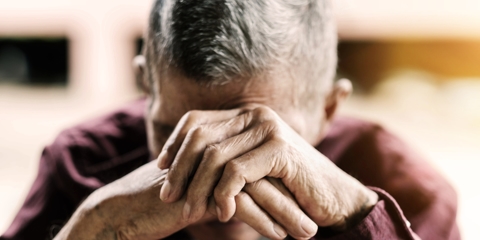When you think of neglect, you likely think of a third party doing the neglecting. While this may be especially true when children are the victims, this is not always the case. For example, there are situations in which elderly people neglect themselves.
Why would they do this? They may have a disability or illness. Some struggle with mental health issues. They may simply be stubborn, suffering in the name of independence. This is called self-neglect, and it is a serious concern. Many elderly people suffer from self-neglect while in their own homes. Others experience this even when in a nursing facility, where they should be receiving top-notch care from staff.
Self-neglect occurs when a vulnerable adult puts their own health, safety, or well-being at risk. A vulnerable adult is one who is:
Over the age of 60 and unable to care for themselves due to a lack of functional, mental, or physical ability.
Found incapacitated.
Developmentally disabled.
Admitted to any type of facility for care.
It is estimated that 9% of older adults are victims of self-neglect. This should not be taken lightly. It can cause health to decline, increasing a person’s risk for increased hospitalization, nursing home placement, and even premature death.
Therefore, you need to take the appropriate steps to keep your loved one safe. Know the signs of this behavior and be aware of what you can do to help your loved one.
Signs of Self-Neglect
There are various signs that could signal self-neglect, such as:
Poor personal hygiene
Unclothed or torn clothing
Skin rashes or bed sores
Malnourishment or dehydration
Absence of medical necessities such as dentures, eyeglasses, hearing aids, walkers, or wheelchairs
Untreated medical conditions
Increased dementia, confusion, disorientation
Unexplained worsening of health or living conditions
Spending too much time alone or isolated
Lack of interest or concern about life
Self-destructive behaviors
Significant changes in behavior
Hallucinations or delusions
Excessive use of alcohol or drugs
Not enough food, water, or heat in the home
Filth or bad odors
Unsafe or unclean living conditions
Human or animal feces in the home
Animal or insect infestation
Hoarding behavior (nothing is thrown away)
Frequent falls
Unpaid bills
How You Can Help Your Loved One
Self-neglect often forms due to depression or stubbornness. As a family member, there are steps you can take to keep your elderly loved one safe and free from neglect:
Observe their behavior. Keep an eye on your loved one's behavior. Have you noticed any changes in personal hygiene or eating habits? If you do have any concerns, bring them up in a caring and supportive manner.
Help with daily tasks. Offer to help out with tasks such as cleaning, cooking, and grocery shopping. If your loved one is resistant, make sure they understand that you are there to support them and that you care about their well-being.
Stay in touch. Keep in regular contact with your loved one and check in on them frequently. Let them know that you are there for them if they ever need anything.
Encourage them to seek medical attention. If you suspect that your loved one is neglecting their health, encourage them to visit their doctor. Offer to accompany them to the appointment and make any necessary arrangements.
Call Adult Protective Services. If you are starting to get worried about your loved one, make a call to Adult Protective Services. Workers will help keep your loved one safe. Once a worker receives the report, they will investigate the report by conducting a face-to-face interview with your loved one. The worker will determine if self-neglect is actually taking place. If so, they will offer referrals to community-based resources such as home care services. The worker may also seek the help of doctors, firefighters, and law enforcement officers to keep your loved one safe.
Consider legal intervention. As a last resort, if you are very concerned about your loved one's self-neglect because it is threatening their health or safety, you may need to consider legal intervention. This may involve seeking guardianship or conservatorship to ensure that the person receives the care they need.
What Else to Know About Self-Neglect
Self-neglect can be a complex issue, and there may be underlying causes that need to be addressed. While it is more often an issue with people with disabilities or mental problems, sometimes elderly people who are fully functional still make poor decisions that result in outcomes that mimic self-neglect. The challenging aspect in cases like these is that competent older adults are legally allowed to make these potentially damaging lifestyle choices freely as long as they are not harming other people.
This can be a frustrating situation. However, you need to be patient and understanding with your loved one. Countless concerned family members struggle to get self-neglecting elders to accept assistance with daily tasks, housekeeping, personal care, medical care, and financial management. Some resort to filing reports with social services agencies to get their loved ones the help they need.
Many families also seek legal help. While a power of attorney can be helpful in cases like these, they do not always work. In many cases, a senior who is neglecting themselves must be officially deemed incompetent so that decisions can be made for them to protect their health. Contact an elder care attorney to learn more about what options are available to you.
Contact Newman Law Group Today
A person experiencing elder self-neglect is unable to meet the basic needs of their daily life. It becomes a serious and even deadly issue if nobody steps in to help their loved one.
If you suspect elder self-neglect and the nursing home or other care facility is not stepping in to help, you need legal assistance right away. The skilled attorneys at Newman Law Group, LLP can assess your case and help you obtain compensation and justice. Call (916) 352-3224 to schedule a consultation with our office today.




